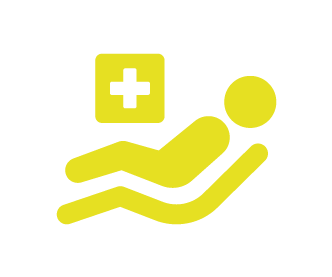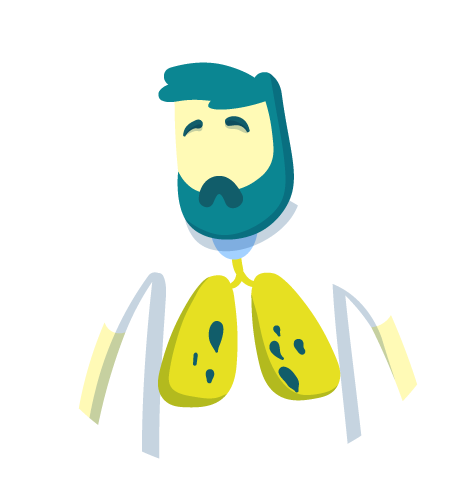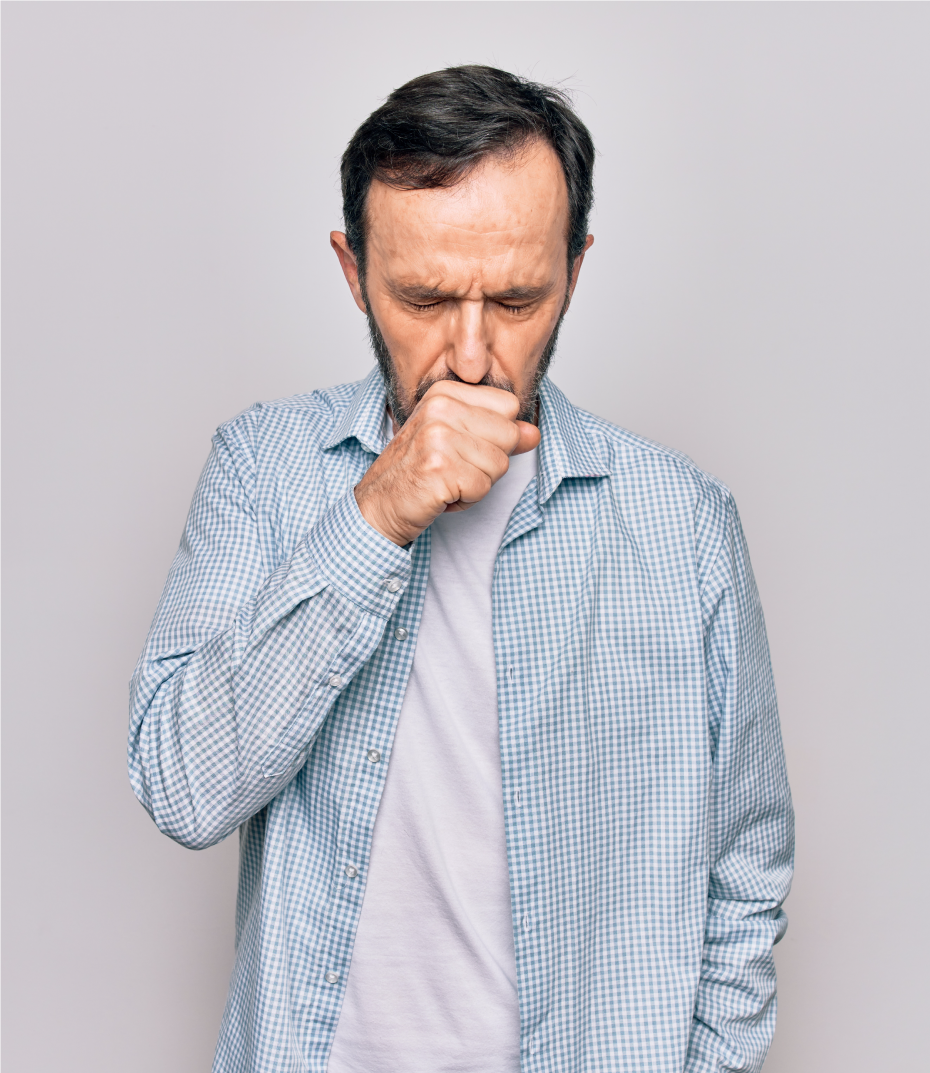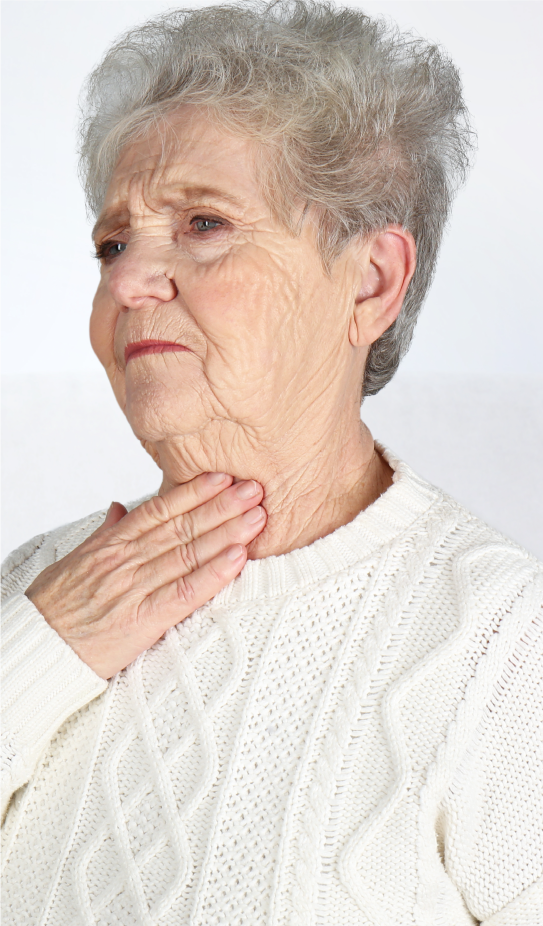Epoc Under Control.

COPD exacerbations can cause permanent lung damage.1
Knowing the signs and symptoms may allow you to identify an exacerbation. To prevent them, it is important to follow your doctor's recommendations.
Complete risk test
What is COPD?
COPD or chronic obstructive pulmonary disease is a disease caused by damage to the lungs, which causes airflow to be limited. It is often a combination of the following two manifestations.2

Chronic bronchitis
It is the inflammation of the airways that carry oxygen to your lungs, namely the bronchi. This inflammation causes a large amount of mucus and this can narrow or obstruct the airways causing breathing difficulty.2
Emphysema
In a person with emphysema, the alveoli (small air sacs) may be destroyed, dilated, narrowed or collapsed, causing a decrease in respiratory function. This damage to the sacs is irreversible and causes less air to enter and leave the lungs, which causes shortness of breath.3
What are COPD exacerbations and why are they so bad?
A COPD exacerbation or COPD crisis is a sudden worsening of COPD symptoms caused by increased inflammation. This worsening of symptoms results in additional treatment.5

If your COPD symptoms have worsened so much that you have had to receive additional medical care, such as oral steroids or antibiotics, you may have experienced a moderate COPD exacerbation.
If you have had to seek emergency care or have been hospitalised because of your COPD, you may have experienced a severe COPD exacerbation.
SYMPTOMS
OF
COPD5

Shortness of breath
especially with physical activity
Excessive mucus production that is not easy to remove by coughing
Wheezing or whistling when breathing
Chest Tightness
Increase in
the frequency of respiratory
infections
The doctor will confirm the presence of COPD by performing a spirometry test, an essential test for its diagnosis.
Causes of Chronic Obstructive Pulmonary Disease
Exposure to irritants that can damage the lungs and airways can cause COPD. The main cause of the disease is smoking, but non-smokers can also develop the disease. 2,6

